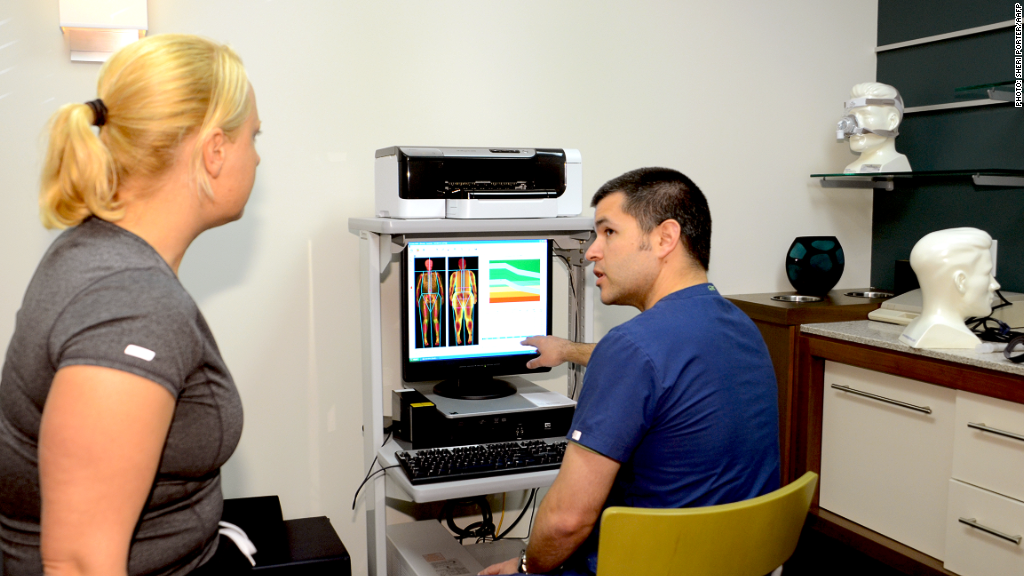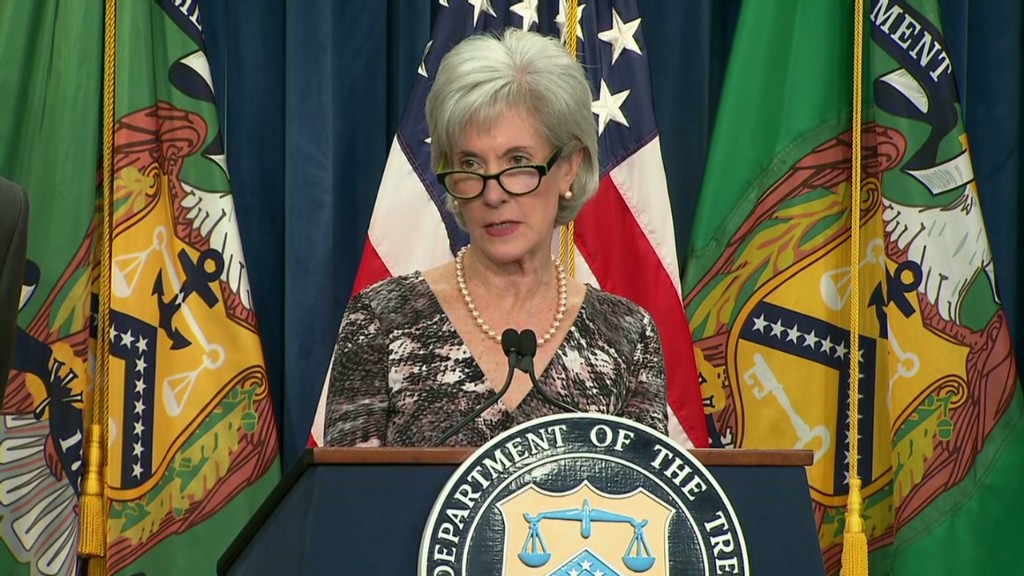
Fed up with declining payments and rising red tape, a small but growing number of doctors is opting out of the insurance system completely. They're expecting patients to pony up with cash.
Some doctors who have gone that route love it, saying they can spend more time with and provide higher-quality care to their patients. Health advocates are skeptical, worrying that only the wealthy will benefit from this system.
In Wichita, Kan., 32-year old family physician Doug Nunamaker switched to a cash-only basis in 2010 after taking insurance for five years. ("Cash-only" is a loose description. Nunamaker accepts payment by debit or credit card too.)
Under the traditional health insurance system, a large staff was required just to navigate all the paperwork, he said. That resulted in high overhead, forcing doctors like Nunamaker to take on more patients to cover costs. Plus, the amount insurance companies were willing to pay for procedures was declining, leading to a vicious cycle.
"The paperwork, the hassles, it just got to be overwhelming," Nunamaker said. "We knew that we had to find a better way to practice."
Related: The Massachusetts (health care) experiment
So Nunamaker and his partner set up a membership-based practice called Atlas M.D. -- a nod to free-market champion Ayn Rand's book Atlas Shrugged. Under the membership plan -- also known as "concierge" medicine -- each patient pays a flat monthly fee to have unlimited access to the doctors and any service they can provide in the office, such as EKGs or stitches.
The fee varies depending on age. For kids, it's $10 a month. For adults up to age 44, it's $50 a month. Senior citizens pay $100.
The office has negotiated deals for services outside the office. By cutting out the middleman, Nunamaker said he can get a cholesterol test done for $3, versus the $90 the lab company he works with once billed to insurance carriers. An MRI can be had for $400, compared to a typical billed rate of $2,000 or more.
Nunamaker encourages his patients to carry some type of high-deductible health insurance plan in case of an emergency or serious illness. But for the everyday stuff, he said his plan works better for both doctor and patient.
"It would be like if car insurance paid for gas, oil and tires," he said. "It would be very expensive, and you'd have to get pre-approval for a trip out of town."
Most of his clients are self-employed, small business owners, or employed at small firms that have found the monthly fee, combined with a high-deductible plan, a cheaper option than traditional insurance.
Nunamaker now has a patient list totaling 400 to 600, compared to the 2,500 to 4,000 he said a typical family physician usually maintains. He's quite happy with his annual salary of around $200,000.
"My professional life is better than expected, my family life and personal time is better than expected," he said. "This is everything I wanted out of family medicine."
Related story: This doctor gets paid in bitcoins
It's believed that only a small number of doctors have switched to a cash-only model. The American Academy of Family Physicians said about 4% of respondents to a 2012 survey reported taking only cash, up from 3% in 2010. A Medscape survey found 6% of physicians in the cash-only business in 2013, up from 4% in 2012.
Most are primary care doctors, though not all.
Kevin Petersen, a Las Vegas-based general surgeon, stopped taking insurance in 2005. Petersen named the same reasons as Nunamaker: too much paperwork and overhead, declining payments from insurance companies, and a general loss of control.
"The insurance industry took over my practice," he said. "They were telling me what procedures I could do, who I could treat -- I basically became their employee."
Now Petersen does hernia operations for $5,000 a pop, which includes anesthesia, operating room time and follow-up visits. He negotiates special rates for the anesthesiologist and the operating room, and is able to provide the service for about a third of what a patient might pay otherwise.
Many of his patients are early retirees who are not yet eligible for Medicare but can't afford a full-fledged health insurance plan, he said, and business is booming.
"My practice at this point is the best it's been in my 26-year career," he said. "By far."

While the cash-only model may please doctors, some question whether it's good for middle- and low-income people.
Kathleen Stoll, director of health policy at the consumer advocacy group Families U.S.A., didn't want to speak directly to either Petersen's or Nunamaker's practice, as she didn't know the specifics of each.
But in general, she fears that doctors who switch to a cash-only model will drive away the patients who can't afford a monthly membership fee or thousands of dollars for an operation.
"They cherry-pick among their patient population to serve only the wealthier ones," Stoll said. "It certainly creates a barrier to care."
She's also concerned that the limited scope of the discounts these doctors negotiate for services outside their purview may not cut it if a patient comes down with a really serious illness.
"I'm always cautious when it's a cash basis," she said. "Are you somehow being put at risk? I'd have a list of questions."


